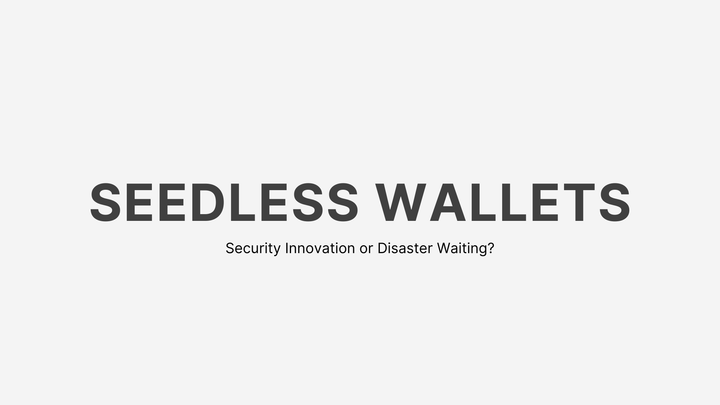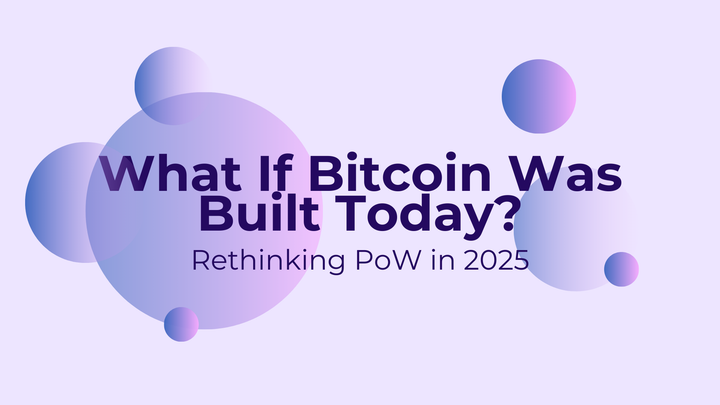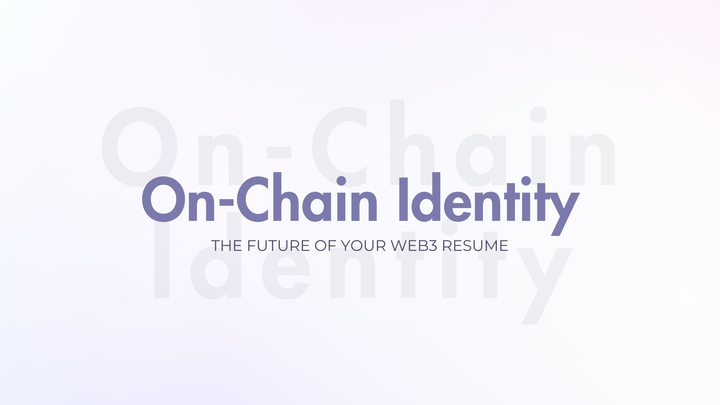Unionbuild's ZK Infrastructure: The Unrivaled Backbone for Trustless Web3 Interoperability
Overview: The Quest for Seamless and Secure Blockchain Communication
The decentralized landscape of Web3 is a vibrant collection of interconnected, yet often isolated, blockchain networks. While this diversity fosters innovation, it also creates significant challenges in terms of secure and efficient communication between these digital islands. This article delves into Union, a pioneering project that is redefining blockchain interoperability through its advanced Zero-Knowledge (ZK) infrastructure. We will explore Union's core mission to build a secure, trustless communication protocol, analyze its unique ZK-based consensus engine and blazing-fast proof generation, and examine why its approach is setting a new standard for cross-chain connectivity, making it a leading solution in the Web3 space.
Introduction: The Interoperability Imperative in a Fragmented Web3
The vision of a truly interconnected Web3, where assets and data flow freely across diverse blockchain ecosystems, has long been hampered by the complexities of interoperability. As more specialized Layer 1s and Layer 2s emerge, each optimized for specific use cases, the challenge of securely and efficiently bridging these networks becomes paramount.
Traditional cross-chain solutions often rely on trusted third parties, multi-signature schemes, or centralized oracles, introducing points of vulnerability and compromising the very decentralization Web3 champions. Recognizing this critical need, Union has emerged as a foundational infrastructure layer, dedicated to solving the interoperability dilemma with a fundamentally new, trust-minimized approach.
Union: A New Paradigm for Trustless Interoperability
Union, founded by seasoned systems engineer Karel Kubat, is building a secure, trustless interoperability protocol that redefines how blockchains communicate. Its core mission is to connect these isolated digital islands, allowing for the safe transfer of messages or value from one to another without requiring trust in any intermediary.
This approach ensures that cross-chain communication is not only secure and verifiable but also resistant to censorship and tampering. Union's commitment to decentralization and trustlessness positions it as a critical enabler for the next generation of truly chain-abstracted Web3 experiences.
The Power of Zero-Knowledge Proofs (ZKPs) in Interoperability
At the heart of Union's innovative approach lies the sophisticated application of Zero-Knowledge Proofs (ZKPs). A ZKP allows one party to prove they know something without revealing the data itself, ensuring privacy and security. In blockchain, ZKPs enhance privacy by validating transactions without exposing sensitive details and improve scalability by compressing numerous transactions into a single, verifiable proof.
Union leverages ZKPs to achieve decentralized, trustless interoperability by proving consensus across chains in a fully verifiable, cryptographically secure way, eliminating reliance on off-chain actors or centralized verification.
Union's ZK-Based Consensus Engine: Speed and Security
Union's key innovation is its ZK-based consensus engine, which enables blazing-fast proof generation without compromising on security or decentralization. This engine allows Union to generate zk-consensus proofs in just five seconds on consumer-grade hardware.
This rapid proof generation is a critical differentiator, delivering high scalability and performance for cross-chain communication. By reworking the consensus engine to be ZK-friendly, Union ensures that messages and assets can be transferred between chains with minimal latency, providing a seamless experience for users and applications.
CometBLS and Galois: The Engine of Efficiency
Union's efficiency is powered by its custom consensus engine, CometBLS, an improvement upon traditional Tendermint, making it suitable for zero-knowledge proving. Complementing this is Galois, Union's Zero-Knowledge Consensus Proving system. Galois is built around principles of speed, low cost, censorship resistance, and decentralization.
It can generate consensus proofs for 128 validators within seven seconds, consuming only 5GB RAM, which allows anyone to generate proofs on an entry-level consumer laptop. This focus on efficient CPU-based ZKP generation eliminates the need for expensive cloud clusters, bolstering decentralization by allowing anyone to participate in securing the network.
Eliminating Trusted Parties: A Core Security Advantage
A paramount reason for Union's superiority lies in its fundamental security model: it completely eliminates reliance on trusted parties, off-chain actors, or multi-signature setups that have historically plagued cross-chain systems. These traditional methods introduce centralized points of failure, making them vulnerable to exploits.
Union mitigates these risks by using ZKPs to prove consensus across chains in a fully decentralized and cryptographically secure way. Its protocol generates verifiable ZK proofs that attest to the state and validity of events across chains, dramatically reducing the surface area for potential exploits and ensuring autonomous communication.
How does Union's complete elimination of trusted third parties in cross-chain communication fundamentally alter the risk profile for decentralized applications and user assets?
Chain-Agnostic Interoperability: Connecting All Ecosystems
Union's interoperability solution is designed to be truly chain-agnostic, meaning it can connect any blockchain regardless of its underlying Virtual Machine (VM) or consensus mechanism. This includes native support for EVMs (Ethereum Virtual Machines), SVMs (Solana Virtual Machines), and other alternative VMs.
It also extends to various blockchain architectures, from Layer 1s and Layer 2s to Bitcoin layers and Cosmos SDK chains. This broad compatibility ensures that Union can serve as a universal communication layer, breaking down silos and enabling seamless interaction across the entire fragmented Web3 landscape.
zkIBC: Unlocking Seamless Cross-Chain Composability
Union expands the capabilities of the Inter-Blockchain Communication (IBC) protocol through its innovative zkIBC. This allows for robust cross-chain use cases by enabling connected networks to be aware of each other's state.
Any statement about account balances, contract interactions, or other state can be proven by verifying a succinct ZK proof, resulting in seamless cross-chain composability. This means developers can build dApps that interact across multiple chains as if they were one, without needing to trust any centralized third party, as the security is guaranteed by the underlying consensus protocols of the connected chains.
Real-World Use Cases: Projects Building on Union
Union's robust ZK infrastructure is already attracting innovative projects building the future of Web3. One notable example is Escher Finance, which utilizes Union's interoperability to offer chain-abstracted liquid staking. This allows users to stake and interact with the protocol seamlessly, regardless of their native chain, with Union handling the underlying cross-chain complexity.
Another key partnership is with Native, focusing on enabling ZK-bridging for the Bitcoin ecosystem, creating trust-minimized bridges for secure asset transfers across Bitcoin L2s and other chains without centralized intermediaries.
Union's Competitive Edge: Why It Stands Out
Union stands out as a leading ZK infrastructure provider due to several key competitive advantages. Its hyper-efficient ZK technology ensures enhanced security and scalability. The protocol's focus on real-time messaging and application-specific intents provides superior performance.
Unlike many competitors, Union's trustless architecture avoids custodial bridges and relies on a fully verifiable, cryptographically secure consensus verification. This combination of decentralization, speed, security, and broad chain compatibility positions Union as a foundational Web3 infrastructure layer, poised to become a dominant force in cross-chain communication.
Challenges and the Path Ahead: Advancing ZK Interoperability
While Union's ZK infrastructure offers compelling advantages, the broader field of Zero-Knowledge Proofs still faces challenges. The computational intensity of generating complex proofs, the intricate nature of cryptographic implementations, and the long-term threat of quantum computing are ongoing areas of research and development.
Union's commitment to continuous optimization of its proof generation, development of quantum-resistant protocols, and fostering an open-source environment will be crucial for overcoming these hurdles and ensuring the long-term viability and widespread adoption of its trustless interoperability solution.
Conclusion: The Foundational Layer for a Unified Web3
Union's ZK infrastructure represents a significant leap forward in solving the critical challenge of blockchain interoperability. By leveraging the power of Zero-Knowledge Proofs for secure, trustless, and highly efficient cross-chain communication, Union is building the foundational layer for a truly unified Web3. Its unique ZK-based consensus engine, combined with its chain-agnostic approach and commitment to decentralization, positions it as a leading solution for developers and users seeking seamless interaction across diverse blockchain networks. As the Web3 ecosystem continues to mature, Union's ability to provide secure and efficient bridges will be indispensable, driving the entire decentralized landscape towards greater connectivity, resilience, and mainstream adoption.
Mitosis References
🔗Links:



Comments ()